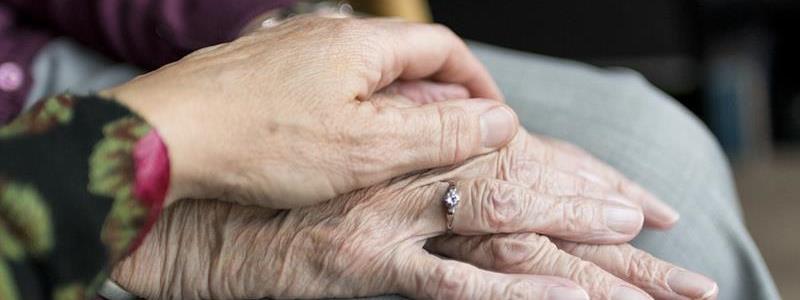Difficulties in caring for dementia patients
Frail elderly suffering from dementia relies on the support, love, and care of carers and family members. To be able to properly care for dementia patients, the carer needs a lot of empathy, patience and ideally – a lot of experience.
The huge overall impact on the carer
Caring for someone with dementia has a huge impact on in many aspects of life. It affects the carer mostly socially, physically and mentally. It may as well influence the economic part of life, especially for the unpaid unofficial carers. For such carers, the overall impact of caring for someone with dementia is even higher. Many carers have a full-time job and families of their own, and yet they still have to cope with the informal caring job.
According to some researches, caring for a person with dementia may have both a positive and a negative impact on the carer.
The positive emotional impact on the carer
- the sense of being needed
- increased self-awareness
- personal and spiritual growth
- the satisfaction of helping others
The negative emotional impact on the carer
- living with dementia patients means more high level of emotional stress to deal with
- a possibility to develop clinical depression
- for the family carers and unpaid ones, there is a risk of developing a syndrome called “carer burden”
- possibility to develop sleeping problems and insomnia
Physical impact on the carer
Stress may negatively influence the body. Longstanding stress is very dangerous for the carers. What can cause stress:
- affects the immune system
- may cause hypertension
- may increase the risk of cardiovascular disease
All these possible conditions pose a great threat to the body. The problem may be even more serious when looking after dementia patient at home in case the patient is our relative. This is said to be even more affecting the body.
Additional problems for the family carers
Economic impact on the carer
The total cost of caring for someone with dementia consists of not only the money spent directly on care but also the time spent to provide care. So for example, a family carer very often has to quit a job or retire early, so the lost earnings would also add up to the total cost of care.
How to care for dementia patients?
Dealing with dementia patients brings numerous challenges. Dementia can include symptoms such as memory loss, problems with clear communication and overall disorientation. There is no straight answer to the question how to deal with dementia patients? There are some fairy general rules that can help when taking care of a person with dementia.
Be patient. Dementia patients have enough of their own struggles to cope with in their everyday life. Therefore, they need to be treated with respect and with a lot of patience.
Unclutter the house. Make the living environment of the person with dementia as peaceful and simple as possible. Limit the possible distractions, make the ambience pleasant with some light scents and play some nice music.
Speak clearly and simply. Only precise and simple communication is effective in the case of patients with dementia, especially during the later stages of the disease.
Spend quality time, try to make the person in care laugh. Laughter is said to be better medicine than the best medications.
How to communicate with dementia patients
The communication with a person that suffers from dementia is very different from the one with a healthy patient. The carer has to be patient, be aware of good and bad days and be empathising. The person in care should feel safe as it would make communication easier.
The communication should be also clear, simple, and short. The carer should use repetition, if necessary. It may happen that the person can’t recall things, even if said a couple of minutes ago.
It is completely forbidden to ask questions that challenge the short-term memory – this memory type is obviously impaired in dementia patients. Such questions, for example, “do you remember who visited you yesterday?” would most probably result in answering “no” and would humiliate the elderly with dementia. There is no point in doing that.
It is also not recommended to use sarcasm or irony. The person with dementia will most probably not understand it and it could only make unnecessary confusion. As a worst-case scenario, using sarcasm may simply hurt the person in care or make them upset.
You can read more on about talking to dementia patients in our post How to talk to a person with dementia.
When dementia patients stop eating
It is not uncommon that patients with dementia have eating problems. Why do dementia patients stop eating or having difficulties to eat properly? This may be caused by general frailty and weakness when the swallowing muscles are becoming weak and may cause swallowing problems. The brain then no longer controls the swallowing properly. The swallowing may be only weakened or the ability to swallow may be completely lost. Some additional problems, like canker sores or mouth ulcers, can also cause a person to take in less food.
What to do when the person in care takes in less food?
First of all, let the patient eat by themselves, even if small amounts only, as long as they are able to do so. It is always better to take in the real food, instead of artificial nutrition and hydration. Nasogastric tube, for example, should be used only as a last resource. Inserting the tube or drips can be very distressing for the person. The dementia patient simply doesn’t understand what is happening to them or the fact that everybody is trying to help them, rather than hurt them. Therefore, very often patients with artificial nutrition in place are pulling out the tubes and that doesn’t help either. It has been also reported that the feeding method affects how long do dementia patients live. A third of people with advanced dementia how have a tube inserted die within one month. It seems therefore that even small amounts of food – but the real food – are far better than the artificial one.
How to get dementia patients to eat?
Feeding dementia patients, especially during the late stages of the disease, may be very difficult. The below tips may help to encourage the person with dementia to eat
Give the person enough time to eat. Since they may experience swallowing problems, give them plenty of time to finish off their meal. Remind them to chew properly and swallow slowly.
Limit distractions, find a quiet place to eat. The dining area should be quiet and away from common distractions like TV or source of loud music.
Serve simple dishes. Over-engineered dishes, many side dishes or too complicated ones may be overwhelming. Serve one dish at a time.
Be open to possible new food preferences, likes, and dislikes. A person that is suffering from dementia may suddenly change their eating habits and may suddenly dislike their most preferred dish or like something they hated in the past.
Ensure the dish has the right temperature. A person suffering from dementia may not be able to tell if the food is too hot or too cold. Check the food for the temperature before serving it to the person in care.
Use contrasting plates, table mats, and tablecloths. It may be tough for someone with dementia to actually distinguish food from plate, or plate from the tablecloth. Make sure it is easy for them to find the food on the table since it’s not that obvious for a person with dementia.
Make sure that the meals are not skipped. A person with dementia may either want to skip meals, or they may want to eat one meal a couple of times. Make sure they don’t eat too many meals and also that they don’t skip meals.
If you are looking for a professional carer that has the right experience to deal with a patient suffering from dementia, our dedicated carers can help. Please visit our “Live in care prices” for more details regarding our pricing.
























